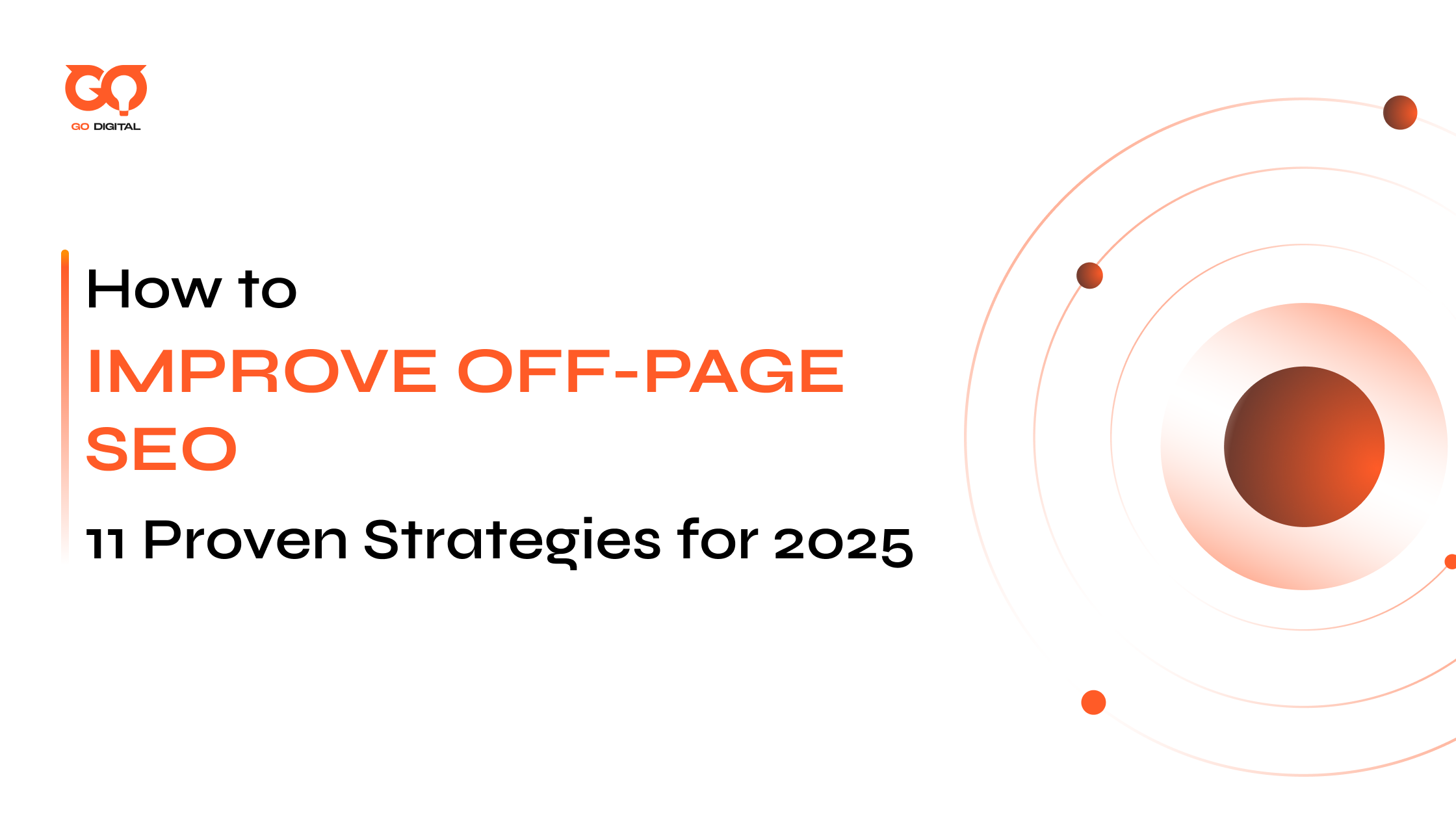Struggling to get your website to the top of Google? You’re not alone. While some websites dominate search rankings, others seem invisible no matter what you do. The secret often lies beyond what’s on the page—off-page SEO can make all the difference.
In this article, we’ll show you proven strategies on how to improve your off page SEO, helping you boost your rankings and drive more traffic to your site. Ready to start climbing?
Key Takeaways
|
What Off-Page SEO Is and Why It’s Essential for Google Rankings
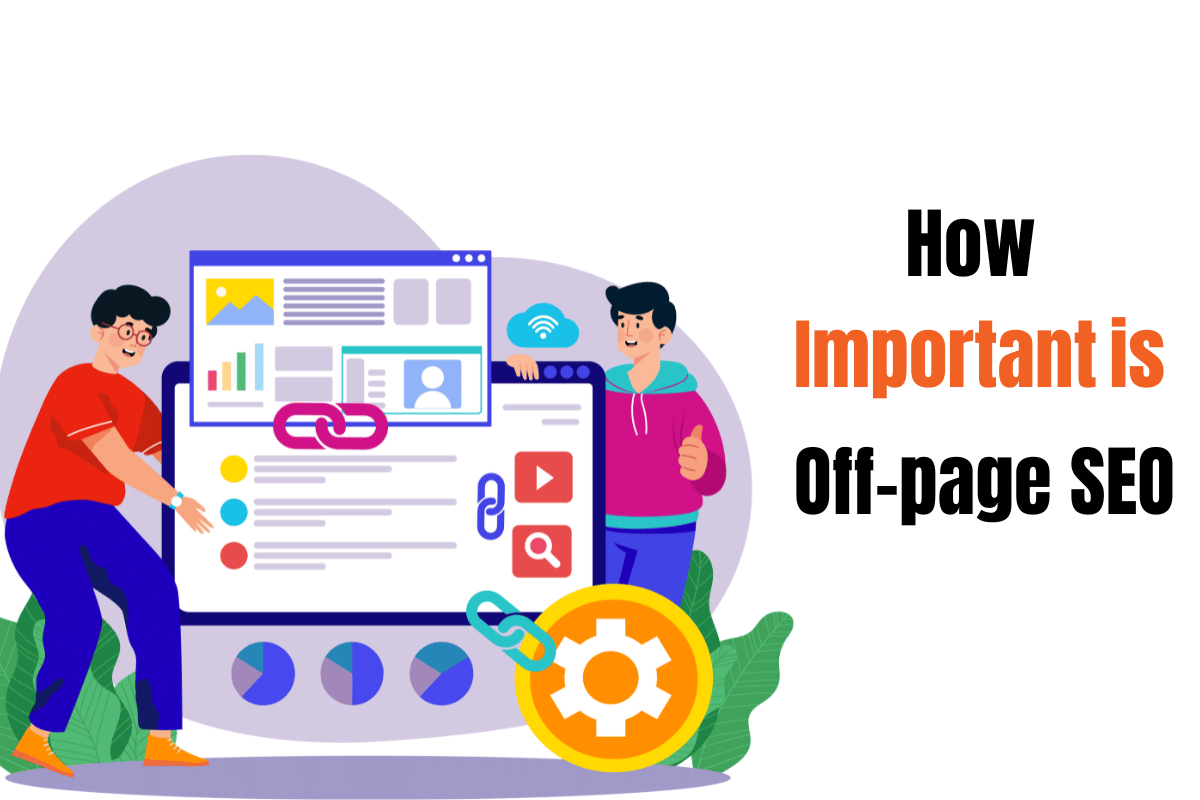
Off-page SEO influences its search engine rankings
Off-page SEO (or backlink building) involves optimization activities. These take place outside your website. They aim to improve rankings on search engines. These external signals tell search engines like Google that your website is trustworthy and valuable.
Off-Page, On-Page, and Technical SEO each play specific roles in your overall online success. So what makes the difference?
- On-Page SEO: This involves everything you do directly on your website. It includes choosing the right keywords, writing quality content, and optimizing headings.
- Technical SEO: This deals with your website’s structure and performance. It focuses on how well search engines can crawl and index your site. This includes site speed and mobile-friendliness.
- Off-Page SEO: As discussed, this is about activities off your website. It primarily involves building connections and signals from other websites. These point back to yours.
Off-page SEO plays a vital role. It improves a website’s credibility. It helps Google understand that your content is valuable and worthy of high rankings. Effective Off-page SEO strategies help websites achieve better rankings. They contribute to increasing organic traffic, improving brand awareness, and strengthening user trust.
Why Backlinks Are Crucial and How To Improve Off-Page SEO?
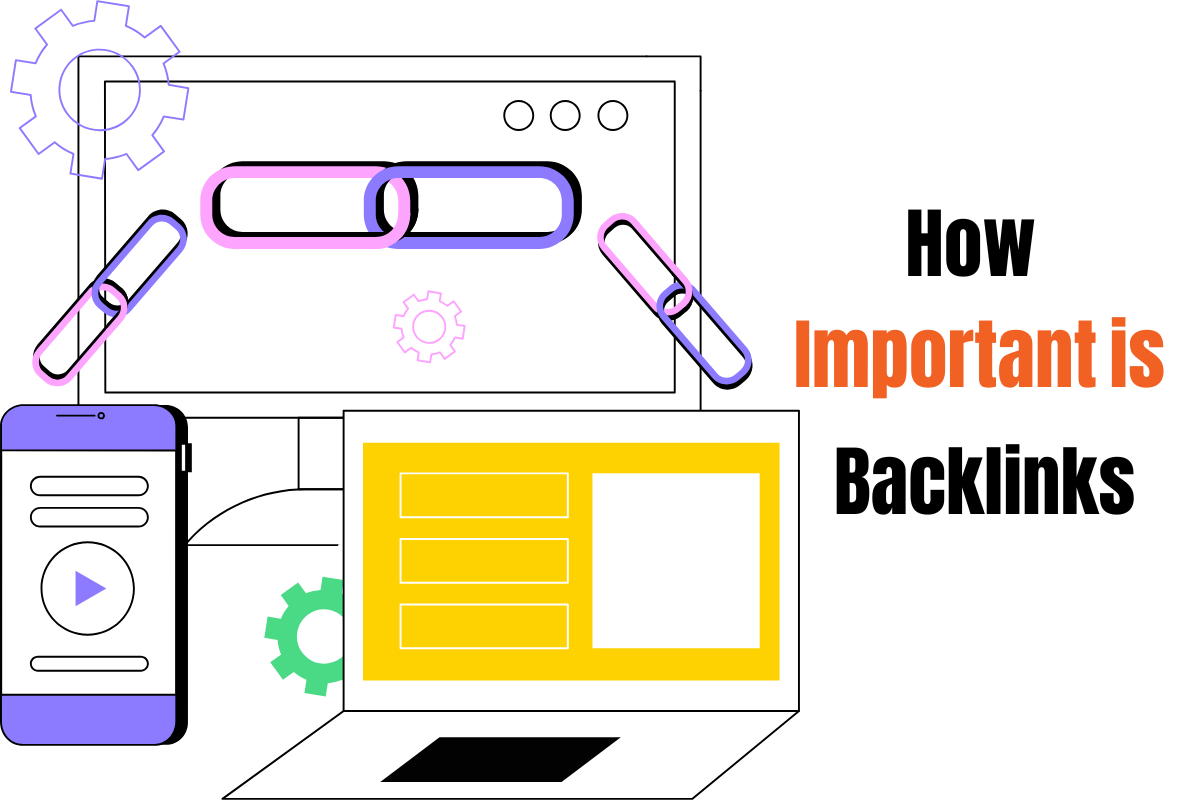
The network of backlinks strengthens a website’s search authority.
Backlinks are a core component of off-page SEO. They play an important role. They increase a website’s credibility. They help Google understand that your content is valuable and worthy of high rankings.
However, quality matters more than quantity. A single link from a site like Forbes can outperform dozens from obscure pages. Therefore, focusing on high-quality backlinks builds a solid foundation for better rankings. At the same time, avoid fake backlinks at all costs. They can harm your site.
According to research from Backlinko, the #1 result in Google has an average of 3.8x more backlinks than positions #2-#10. Backlinks from high Domain Authority (DA) sites, like those with DA 70+, can significantly improve SERP rankings.
Backlinks come in different forms. Each has a specific role in SEO for 2025:
- Dofollow Links: These pass “link equity” from the linking site to your site. This equity signals authority. It helps improve your search rankings. Your goal for link building importance is to acquire as many high-quality dofollow links as possible.
- Nofollow Links: These tell search engines not to pass any link equity. They don’t directly boost rankings. However, they can drive referral traffic and make your backlink profile look natural.
- Sponsored Links: These are paid links. They should have a rel=”sponsored” attribute. They do not pass link equity.
- UGC (User Generated Content) Links: These links come from user-created content (e.g., comments). They often carry a rel=”ugc” attribute. They are typically treated similarly to nofollow links.
How to Improve Off Page SEO? 11 strategies for effective link building
Mastering how to improve off-page SEO involves diverse techniques. Here are 11 strategies to build links and boost your website’s authority fast.
1. Leverage High-Quality Backlinks
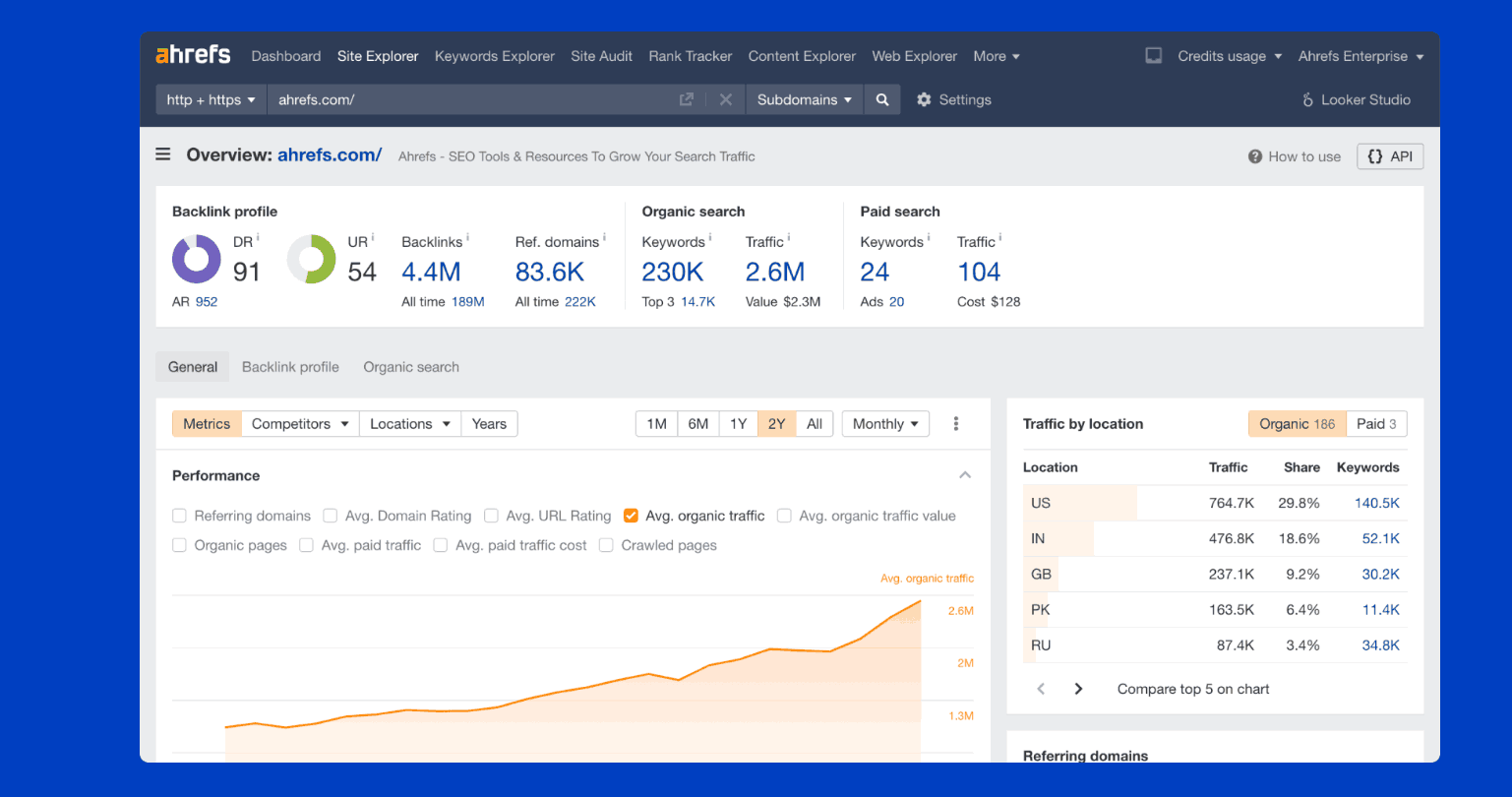
High-quality backlinks boost a website’s search authority
Leveraging high-quality backlinks is fundamental to improving off-page SEO. A quality backlink comes from an authoritative website. It’s relevant to your niche and has a good reputation. These links are like strong recommendations. They directly influence backlinks on Google, passing significant value to your site.
Here’s how to find and build high-quality links:
- Identify industry leaders and top-ranking sites.
- Analyze their backlink profiles. See who links to them.
- Create valuable content that naturally attracts links, or actively seek opportunities.
Methods include guest posting on influential blogs. Here, you offer unique insights. You can also form content collaborations with other businesses. This involves creating joint projects and sharing links. Another effective approach is broken link building. Here, you find broken links on other sites. Then, you offer your relevant content as a replacement.
You can gain high-quality backlinks through various methods. Consider guest posting on influential blogs. Collaborate with businesses to create shared content. Or, utilize broken link building to replace dead links. Some experts also acquire expired domains with strong backlink profiles. They then redirect them to pass authority to their sites.
2. Maximize Social Media Marketing
While social media links are generally “nofollow” and don’t directly pass link equity, social media marketing plays an indirect yet powerful role in improving off-page SEO. It boosts your content’s visibility, drives traffic, and generates important brand signals. This also highlights effective Social media SEO integration.
Maximize social media marketing with these steps:
- Focus on sharing your content widely. Engage with your audience.
- Promote your blog posts and new products across relevant platforms.
- Encourage shares, comments, and discussions to expand your reach. This can lead to others naturally linking to your valuable content.
Consider using platforms like Facebook, X (formerly Twitter), and LinkedIn for professional content and audience engagement. For more visual content, Pinterest and Instagram are effective. Even niche communities on Reddit can drive significant traffic and attention to your SEO content marketing efforts.
3. Engage in Niche Communities and Forums
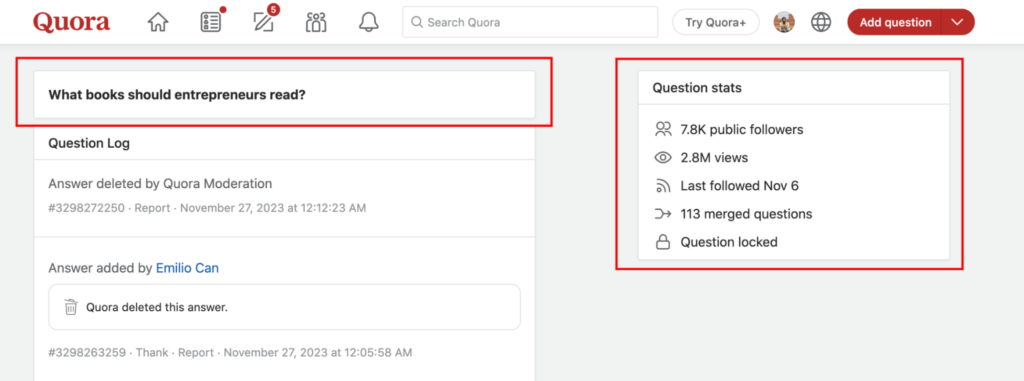
The Quora Forum is where experts share insights and build connections
Engaging in niche communities and forums is one way to build backlinks. You establish yourself as an expert. This leads to valuable links from trusted sources within your industry. It shows search engines your authority in a specific field.
How to start engaging effectively:
- Search for online forums, Q&A sites, and community groups. Look for ones related to your specific niche.
- Share your knowledge. Answer questions, offer helpful advice, and contribute to discussions.
- When relevant and appropriate, link back to your website’s content. Do this if it provides a helpful resource. Always focus on adding value first.
Examples of platforms where this strategy works well include Reddit, especially within specific subreddits, and Quora for answering targeted questions. Industry-specific forums, professional groups on LinkedIn, or even active Facebook groups can also be ideal places to interact.
4. Leverage Brand Mentions and Citations
Even when your brand is mentioned without a direct link, these “mentions” still provide valuable signals to search engines. They help Google recognize that your brand is acknowledged and trusted. This ultimately enhances your website’s authority.
How to leverage brand mentions and citations:
- Monitor online mentions: Use tools like Google Alerts, Brand24, or Mention. Track when your brand is mentioned across the web.
- Reach out to websites with mentions but no links: If you find a mention of your brand without a link, contact the author or site owner. Request that they add a backlink to your website.
- Feature your brand in industry reports: Ensure your brand appears in relevant industry reports or articles on authoritative sites.
For example, if a well-known blogger mentions your product in a post but doesn’t provide a link, you can reach out. Request them to add a link to your product in their article. This not only creates a valuable backlink. It also boosts your website’s credibility when mentioned on trusted platforms.
5. Collaborate with Influencers

An influencer promoting a brand to their engaged audience
Collaborating with influencers can help you reach a wider, relevant audience. Critically, it generates trusted backlinks from their platforms. Influencers have established audiences and authority within their niches.
Here’s how to implement this strategy:
- Identify influencers whose audience aligns with your target market.
- Reach out to them with compelling content partnership ideas.
- This could include inviting them to guest post on your blog or conducting interviews. You could also co-create unique content that benefits both parties.
For example, you can partner with Unbox Therapy, a popular phone reviewer. Have him do a detailed review of your new phone on his YouTube channel. Then, ask him to link to your product in the description. This will help increase the quality of your backlinks and brand awareness.
6. Repurpose Content Through Syndication and Press Releases
Repurposing content through syndication and issuing press releases allows you to extend the reach of your existing valuable content. It reaches a larger audience. It also opens up numerous opportunities to gain high-quality backlinks from authoritative news and content platforms.
Executing this strategy involves:
- Take your best-performing content (e.g., a detailed guide). Adapt it for other platforms.
- For syndication, share condensed versions or full articles on reputable content aggregators.
- For press releases, craft a newsworthy announcement. Distribute it to media outlets.
For example, publish your blog posts on platforms like Medium, PR Newswire, or Newswire.com. This can help distribute your news to journalists. If your story is compelling, major publications like Business Insider or Forbes might pick it up. This results in powerful backlinks to your site.
7. Harness the Power of Customer Reviews and Testimonials

Positive reviews boost a business’s online reputation
Harnessing the power of customer reviews and testimonials is a highly effective, natural way to boost your website’s trustworthiness. Positive reviews not only build confidence with potential customers. They can also generate valuable, natural backlinks and mentions across the web.
Leverage this power through:
- Actively encouraging your satisfied customers to leave reviews about your products or services.
- Make it easy for them to find and use review platforms.
- Send follow-up emails after a purchase. Ask for feedback. Provide direct links to relevant review sites.
For example, Trustpilot, Google Reviews, or Yelp are excellent places for local businesses or service providers to get reviews. These platforms often feature links back to your website from the review pages, providing strong signals.
8. Encourage Branded Searches
Encouraging branded searches indirectly leads to more organic mentions and backlinks from other websites. When more people search for your brand name directly in search engines, it signals to Google that your brand is becoming more recognized and trusted.
Here’s how to foster more branded searches:
- Create a robust marketing strategy that consistently reinforces your brand identity.
- This involves strong branding in all your communications, unique value propositions, and excellent customer service.
- Run ad campaigns that prominently feature your brand name.
- Host contests or promotions that require participants to search for your brand.
For example, host contests or promotions that require participants to search for your brand. Consistently creating high-quality content that solves user problems also helps build a reputation. This encourages users to remember and search for your brand directly on Google and other search engines.
9. Strengthen E-E-A-T (Experience, Expertise, Authoritativeness, Trustworthiness)
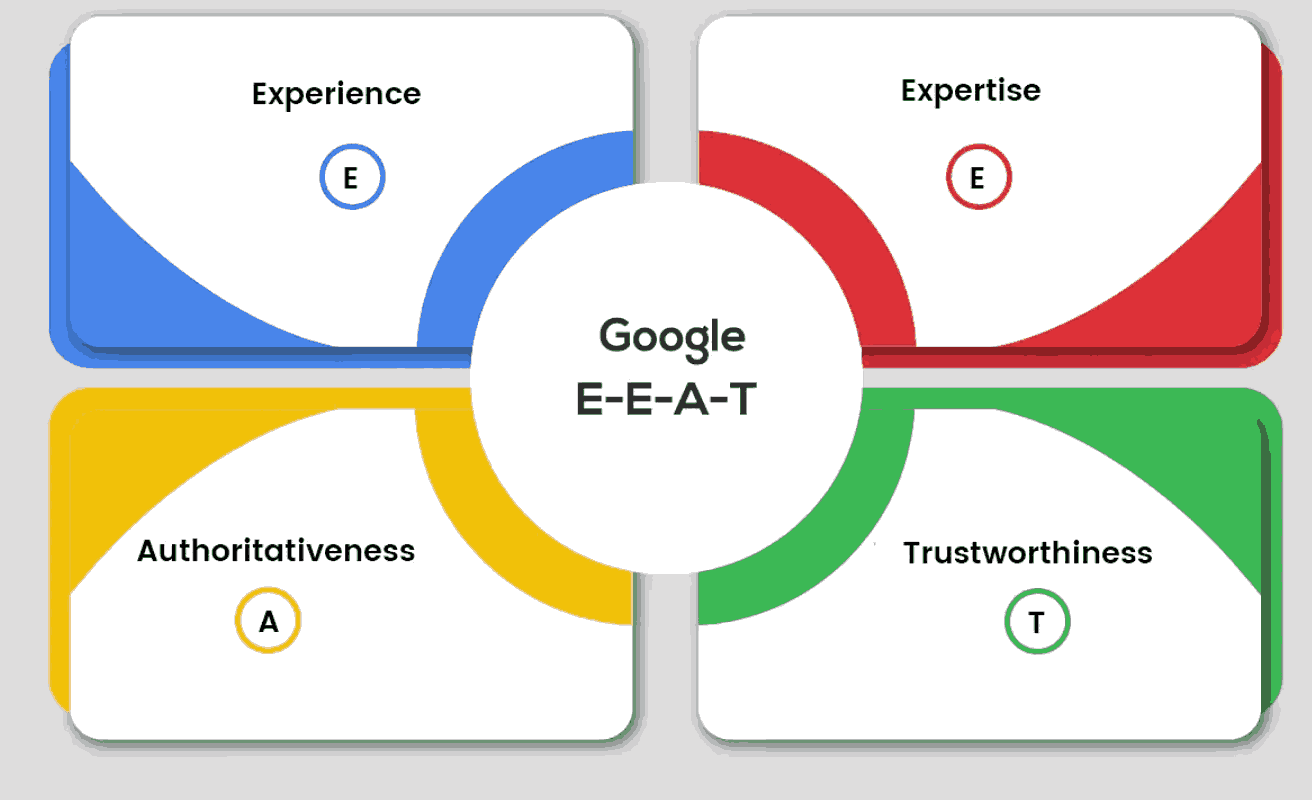
E-E-A-T is Google’s framework for evaluating content quality
Strengthening E-E-A-T (Experience, Expertise, Authoritativeness, Trustworthiness) is vital. It improves off-page SEO and overall search performance. Google highly values websites that demonstrate these qualities. They are seen as credible sources of information. High E-E-A-T can directly influence your rankings.
Improving your E-E-A-T involves these steps:
- Focus on enhancing the quality and credibility of your content.
- Ensure all information is accurate, up-to-date, and thoroughly researched.
- Highlight the qualifications and experience of content creators or authors.
- Seek out opportunities for your experts to be cited or interviewed by other authoritative sources.
For example, blog posts or articles written by genuine experts in the field. Add author bios that showcase their credentials. Building links from highly reputable websites, especially academic or governmental sites, further validates your site’s authority and trustworthiness.
10. Digital PR and Media Outreach
Digital PR and media outreach involve promoting your brand, content, or expertise. This targets journalists, bloggers, and online publications. The goal is to get your brand featured in high-authority media. This generates valuable backlinks and boosts your overall online presence.
How to implement digital PR effectively:
- Identify newsworthy stories or unique data within your company.
- Craft compelling press releases or engaging pitches.
- Reach out to relevant journalists, editors, and industry influencers.
For instance, if your company publishes groundbreaking research, share it with major news outlets like Forbes or The New York Times. If you have a unique startup, pitch your story to tech news sites such as TechCrunch.
11. Monitor and Improve Off-Page Optimization Efforts
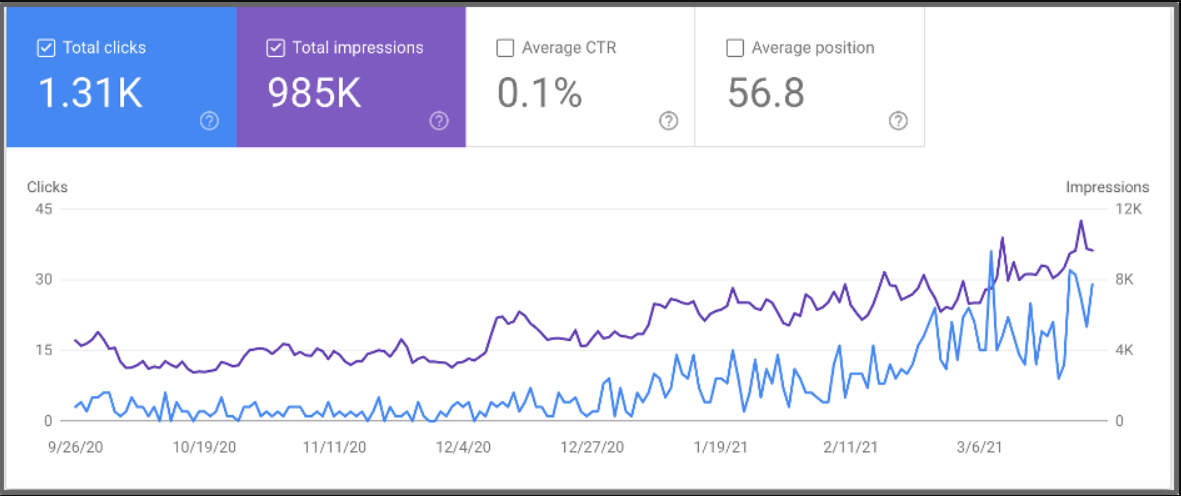
Use Google Search Console for search performance
Monitoring and continuously improving your off-page SEO allows you to track what’s working. You can identify areas for improvement. You can also adjust your strategies as search engine algorithms evolve. This ongoing process ensures your efforts to improve off-page SEO remain effective.
Monitor these crucial metrics to gauge your off-page SEO efforts:
- The number and quality of your backlinks.
- Your website’s Domain Authority (DA) or Domain Rating (DR).
- Organic traffic growth.
- Brand mentions across the web.
- Referral traffic is coming from your backlinks..
Use tools like Ahrefs for backlink analysis. Use SEMrush for competitor insights. Use Google Search Console for search performance. Brand24 tracks mentions across the web. Regularly reviewing this data allows you to adjust your anchor text optimization and overall backlink building strategies to maximize results.
Conclusion
Mastering how to improve off-page SEO can set your website apart in competitive markets. By consistently applying these 11 proven strategies, you can significantly boost your search engine rankings, attract more organic traffic, and establish your brand as a leader in your industry.
At Golden Owl Digital, we understand the complexities of Off-Page SEO. By focusing on smart strategies and offering services like outsource backlink building, we’re committed to helping your businesses achieve top search performance. Start implementing these tactics to boost your rankings today!

Jaden is an SEO Specialist at Golden Owl Digital. He helps brands rank higher with technical SEO and content that resonates

